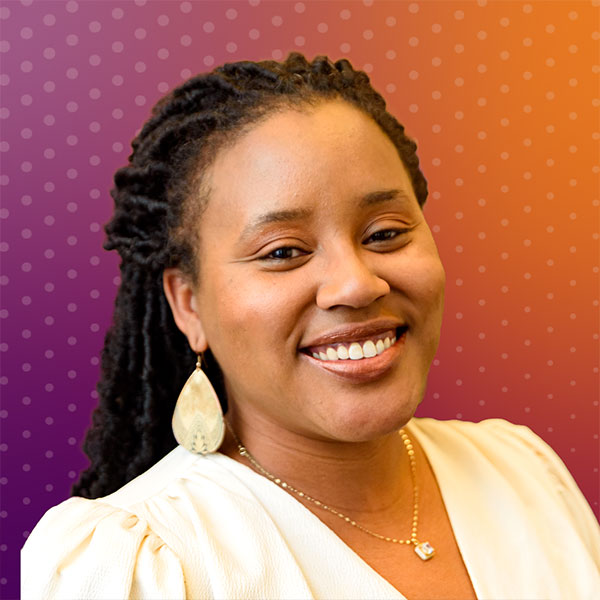
Director of Equitable Research-Practice Partnerships
Dr. Davis (she/her)’s work as an educational researcher is dedicated to equity and creativity in service of underserved youth, teachers, and communities. Dr. Davis most recently served as the Director of Research for the Cross-Institutional Collaboration and Reimagining toward Equity, Access, and Teacher Effectiveness Project at Georgia State University, where she led the research collaborations between local school districts, university teacher prep programs, and community partners. Prior to CREATE, Davis served as an evaluator and Director of the National Youth Poet Laureate Program of Urban Word where she managed equity-centered youth development in out-of-school spaces across a network of 70 US counties and cities. Davis holds a Ph.D. in Critical Educational Policy from Ball State University, a Master of Arts in Teaching from Marian University, and a B.A. in English from the University of Wisconsin-Madison.
Q & A
Q: How did you become interested in the field of education?
My interest in education sparked because I had tremendous educators at every phase of my education. My first teacher was my grandmother, Roxie J. Johnson, my first Sunday school teacher. She taught me to love language and reading. Then my public school teachers layered in additional support and cultivated my academic curiosity. I was hooked on education as a profession, when I realized that teachers can be a child’s most profound influence outside of the home.
Q: What inspired you to explore education research and research-practice partnerships specifically?
My interest in education research began when I was a teacher working in an extremely under-resourced school and I noticed a shift in myself and my students during different instructional moments. I was the same young Black teacher with a heart for Black and Brown students. We were all struggling to figure this school thing out. My students were the same exact students just thirty minutes later, yet we had dramatically different teaching and learning experiences. I needed to understand why.
Fast forward many years, as a critical qualitative researcher I was exploring my “why” questions, and I was unsatisfied with only being in conversation with academic audiences and curious about how to get better research into practice. Then I began my work with research-practice partnerships, working with districts to implement research findings and collaborate on new questions together. As a scholar serious about educational liberation for our nation’s most marginalized students, I’m confident research-practice partnerships are one of the best ways forward we have access to right now.
Q: How does your role as Director of Equitable Research-Practice Partnerships contribute to RPPL's mission?
My role will contribute to RPPL’s mission by continuing to increase our organization and network’s capacity to do high-quality equity-centered research. I will work to amplify effective equity frameworks and tools we can all use to do better research. My role will support members in accessing RPPL funding for research, disseminating our collective learnings, and identifying new questions to study within our learning agenda.
Q: How do you feel RPPL can help improve PL?
I think RPPL is well positioned to identify and magnify what works in PL in the service of all children, with a focus on our nation’s most marginalized youth. The research partnership element of RPPL’s design and mission can improve PL by shortening the gap between what we know and what we do in PL, putting researchers and practitioners in closer, reciprocal relationships. I also believe RPPL can amplify effective equity-centered PL research and practice in this nation, in addition to offering actionable feedback on PL that inhibits real educational equity.
Q: Do you have a favorite teacher?
Of course! My favorite teacher of all time was my high school English teacher. His course was about literature and practical life lessons. He listened intently to his students and challenged us daily. He offered a tough love approach that challenged me beyond what I thought I could achieve at time. Then, he provided a step-by-step plan for success with incremental opportunities to check in and revise. He always made me feel like we were in it together and he would help me at every turn. He saw me. He showed up for me. That has made all the difference.
Q: How do you like to spend your free time?
I spend my free time reading fiction, having dance parties with my toddlers, or watching stand-up comedy. I’m really inspired by Afrofuturistic and Nigerian fiction authors right now. On a bright sunny day, you’ll find me searching for a nice, shady place to read.